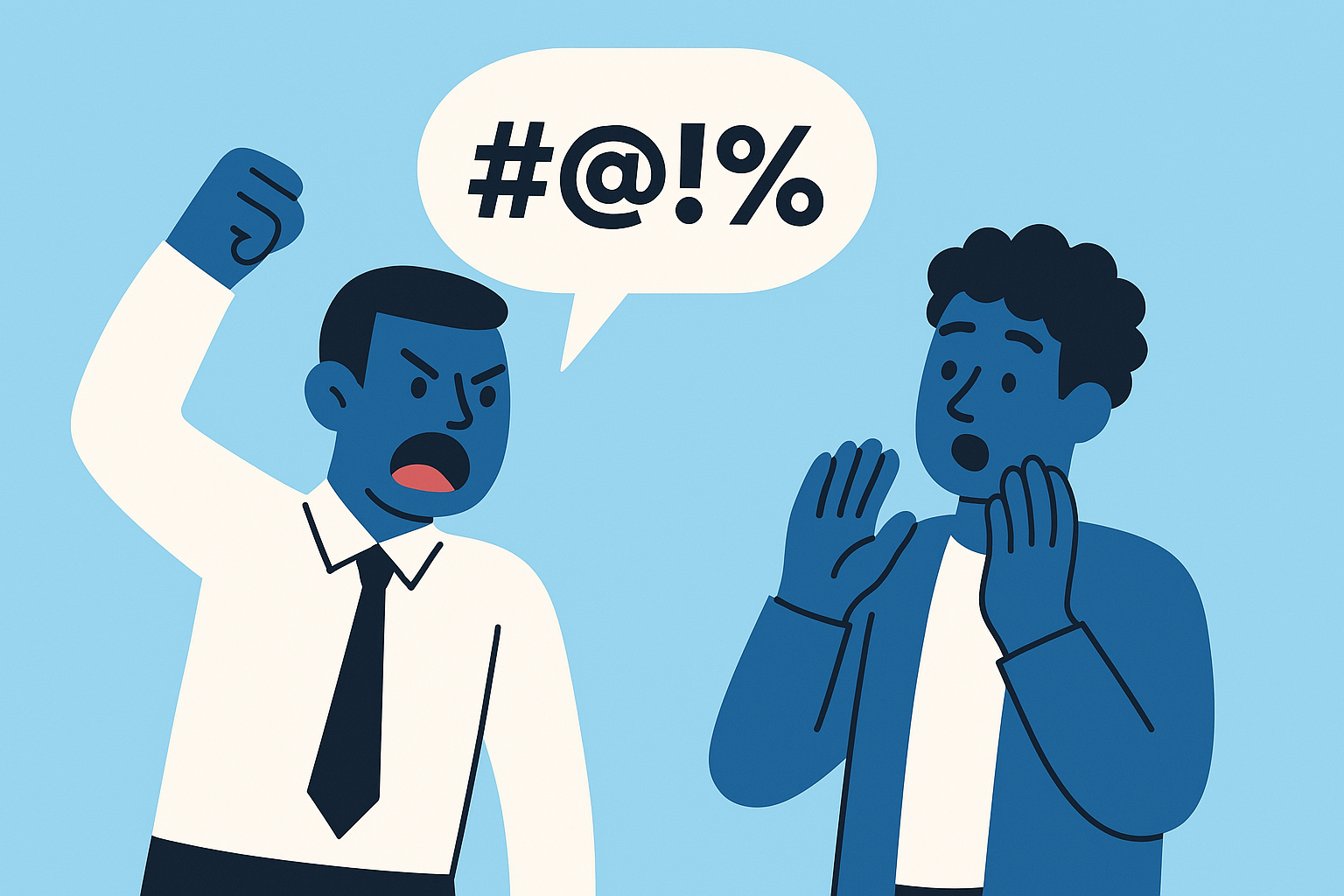Swearing has its moments. A well-placed curse word can be cathartic, funny, or even persuasive. It can sharpen a punchline or express frustration when no other words will do. But when every other sentence starts sounding like an unfiltered podcast rant, it stops being clever and starts being a habit. A habit that, if left unchecked, can affect how you’re perceived at work, at home, and even by yourself.
If you’re reading this, chances are you’re not looking to become a bland, emotionless automaton. You probably just want to clean up your language a bit without losing your edge. And that’s entirely possible. With a bit of awareness, intentionality, and habit-tracking, you can scale back on the swearing and still keep your personality intact.
This post is for the data nerds and habit lovers—the people who appreciate behavioral science and want to quantify their progress. So let’s dive in and explore what it really takes to swear less, why it matters, and how a supportive AI coach can make the difference.
Why We Swear (and Why It Sticks)
Swearing taps into a primal part of our brain. It isn’t just a colorful way to communicate—it’s deeply emotional. Neuroscience shows that curse words activate the amygdala, our brain’s center for emotions. That’s why they often slip out during moments of shock, pain, or intense frustration.
Once we start relying on swearing, it becomes an automatic habit. You stub your toe? Out flies a four-letter word. Your kid spills juice on your laptop? Another one. The behavior becomes part of your brain’s path of least resistance: the shortest route from stimulus to expression.
This isn’t a character flaw. It’s a habit loop. And like any loop, once we understand its structure, we can begin to reshape it.
Let’s break it down:
| Trigger | Common Example |
|---|---|
| Stress or Frustration | Traffic jam, annoying email |
| Social Imitation | Friends or coworkers who swear frequently |
| Emotional Expression | Surprise, pain, humor |
What you’ll notice here is that swearing often isn’t planned—it’s reactive. It emerges in response to a cue and is often reinforced by an emotional release. Understanding this gives you power. You can start to notice the patterns, anticipate them, and prepare new responses.
The Data Behind the Habit
Let’s put on our analytics hat. Behavioral science tells us that successful habit change hinges on three elements: a clear cue, a planned alternative behavior, and a feedback mechanism.
If you want to change a behavior, it helps to measure it. In fact, just tracking a behavior tends to reduce it. This is known as the Hawthorne Effect. When we know we’re being observed—even if the observer is us—we become more self-aware and more intentional.
Here are a few key metrics you can track:
| Metric | Why It Matters |
| Daily Swear Count | Establishes a baseline and helps measure progress over time |
| Trigger Type | Reveals patterns and helps identify moments of vulnerability |
| Replacement Used | Helps evaluate which alternative strategies are effective |
This type of tracking can be done with a simple notebook or a habit tracking app. You’ll start to see trends: you swear more in traffic, or when you’re tired, or around a certain group of people. That insight alone can give you a massive edge.
Substitutes That Don’t Suck
The goal isn’t to sound like you’re in a children’s show. You want substitutes that are satisfying and feel authentic to you. The key here is to find language that lets you express the same emotion, but in a way that reinforces control rather than impulse.
Here are a few playful options that others have used with success:
- “Son of a biscuit!”
- “What the fudge?”
- “Frickin’ ridiculous.”
- “Holy guacamole!”
- “Dang it!”
You might come up with your own version. The important part is to have a substitute ready—a verbal shield, if you will—when the moment strikes. It creates a buffer between the trigger and your default reaction.
Building the Anti-Swear Habit in 30 Days
Reducing swearing is about more than changing your vocabulary—it’s about rewiring your brain’s reaction system. Here’s a structure that can help guide you through a full month of transformation:
Week 1: Awareness Mode Begin by observing. Don’t judge yourself. Just track your swearing: when it happens, what triggered it, and how it made you feel. This builds mindfulness.
Week 2: Substitution Mode Now that you know your triggers, start experimenting with replacements. Keep them handy—mentally or on paper. The key is not perfection, but practice. The more you catch yourself, the better you get.
Week 3: Environmental Tweaks Surround yourself with subtle reminders. Sticky notes on your dashboard or monitor. A notification at your high-risk times (like Monday mornings or stressful meetings). Tell close friends what you’re trying to do. You’ll be surprised how supportive people can be.
Week 4: Habit Reinforcement Evaluate your progress. What worked? What didn’t? Adjust your strategy for the long term. Maybe you need a weekly check-in with yourself, or a small reward system for each milestone.
Changing how you speak changes how you think. It forces you to slow down and choose your response. That awareness radiates into every other area of your life.
Enter the AI Coach: Your Personal Swear-Down Partner
Of course, all this is easier with a little help. The 30 Day Habits AI Coach isn’t just a reminder bot. It’s a dynamic system designed to increase your chance of success over time.
The AI Coach learns from you. Every day you track your behavior, it updates its understanding of your patterns. It analyzes when and why you’re most likely to swear and gives you real-time, tailored advice. Not cookie-cutter suggestions, but data-driven, personalized nudges.
Here’s how it works:
- The predictive success engine adapts based on your progress. If your swear count isn’t improving, it changes your plan. Maybe you need different substitution phrases. Maybe you need to focus more on sleep and stress levels. The Coach figures that out.
- You receive strategically timed reminders through SMS and email—not spammy, but sent right when you’re likely to need them most. If 4 PM is your danger zone (thanks, traffic), the Coach might message you at 3:50 PM: “Heading out soon? Let’s keep it clean today. You’ve got this.”
- You log your progress with a quick tap, and the Coach keeps track of your streaks, your substitute success rate, and your top triggers. It becomes your personal dashboard for habit change.
This isn’t about perfection. It’s about progress. One day at a time. And with a little guidance, a few clever substitutions, and the power of data, you can absolutely do this.
If you’re ready to take on the challenge of changing your language and claiming more control over your reactions, let the AI Coach be your guide. Because swearing less doesn’t mean losing your voice—it means owning it.





